14-9. Yesterday they said in a TV
program from North America that there were plans to reintroduce
the Beaver in order to make the good wetlands come back. The
Beaver (Castor) makes dams in order to create a suitable
habitat for himself to swim in and to easily tow tree branches
as building material for his house - which has the entrance below the
surface.
Wetlands are more valuable for life
than deserts.
When they on Easter Island in
September
observed the Full Moon in the Pegasus Square they knew it meant
the waters of life - vai ora - were returning.
Ora. 1. Healthy;
to recover, to be saved (from an illness or a danger):
ku-ora-á, ina kai mate, he recovered, he did not die;
ku-ora-á te haoa, the wound has healed; e-ora-no-á,
he is still alive; ora-hakaou mai, to come back
to life; ora ké, what a pleasant breeze! (lit: how
healthy!). 2. Stick for spinning top (made from the shell of
a sandalwood nut) with which children make the top spin.
Vanaga. 1. December, January. Ora nui, November,
October. 2. To live, to exist, to draw breath, to survive,
to subsist, to be well, healthy, safe, to refresh, a pause,
rest, ease; e ko ora, incurable; ora tuhai,
previous existence; ora iho, to resuscitate, to
revive; ora nui, vigorous; oraga, life,
existence; oraga roaroa, oraga roaroa ke,
oraga ina kai mou, immortality; oraga kore,
lifeless; oraga mau, oraga ihoiho, vivacious;
oraora, oraora no iti, to be better;
hakaora, to draw breath, to revive, to strengthen,
healthy, to sanctify, to animate, to save, to repose, to
cure, to rest, to comfort, to assuage; hakaora ina kai
mou, to immortalize; hakaoratagata, Messiah,
Saviour. 3. To give water to; kua ora te kevare, to
water a horse; hakaunu ora, to water. 4. To staunch,
to stop the flow of a liquid. 5. To make an escape;
hakaora, to discharge, to deliver, to set free. 6. To be
awake (probably ara); hakaora to guard. 7. A
zephyr, light wind; kona ora, a breezy spot;
ahau ora, agreeable breeze. Churchill. Ola,
life, health, well-being, living, livelihood, means of
support, salvation; alive, living; curable, spared,
recovered, healed; to live; to spare, save, heal, grant
life, survive, thrive. Ola loa, long life, longevity,
Ola 'ana, life, existence. Wehewehe. The explorers
reach Easter Island in a 'canoe' (vaka). The name of
their craft is given as Oraorangaru 'saved from the
billows' (Brown 1924:40) or Te Oraora-miro 'the
living-wood' (ME:58). The Routledge reference 'Each (man
went) on a piece of wood' (RM:278) also seems to refer to
the name of the canoe. As far back as 1934, the name was no
longer understood. I favor the following explanation: The
difficulty in interpreting the name of the canoe of the
explorers arises from the name segment oraora. To
begin with, the compound form oraora ngaru
should be analyzed in comparison with other Polynesian
compounds, such as MAO. pare-ngaru 'that which fends
off the waves' (i.e., the hull of the boat), TAH.
tere-'aru 'that which moves through the waves' (i.e.,
riding the waves on a board). There are several possible
translations for oraora as the reduplication of
ora. Te Oraora Miro can be translated as 'the
pieces of wood, tightly lashed together' (compare TAH.
oraora 'to set close together, to fit parts of a canoe')
and be taken to refer to the method of construction of the
explorer canoe, while Oraora Ngaru means 'that which
parts the water like a wedge', or 'that which saves (one)
from the waves, that which is stronger than the waves'.
(Barthel 2)
... For when the ruler drinks the sacred
offering, he is in the state of intoxication Fijians call
'dead from' (mateni) or 'dead from kava' (mate
ni yaqona), to recover from which is explicitly 'to
live' (bula). This accounts for the second cup the
chief is alone accorded, the cup of fresh water. The god is
immediately revived, brought again to life - in a
transformed state ...
.jpg)
It was the opposite of the
Dry Square of Raven where the waters had disappeared down into the
Abyss:

 |
 |
 |
 |
|
Eb5-14 |
Eb5-15 (326 + 164 = 490) |
Eb5-16 |
Eb5-17 (166) |
|
e hakatopa
hia
mai |
te
rima kua tu |
te ua |
te
henua - te kiore |
|
Topa. 1. To bend
down, to drop to the ground;
to fall on a certain date.
2. To stop doing something,
to drop; ina ekó topa
taau aga, do not stop,
keep doing your work. 3. To
remain, to be left over, to
be unfinished; he topa te
kai, the food is not
finished, there is some
left. 4. To come to one's
memory; i te aamu he topa
te vânaga tûai, in the
legends old words come to
memory. 5. To remember, to
reflect (with mana'u
as subject); e-topa
rivariva tokorua mana'u ki
te me'e nei, let the two
of you think carefully about
this thing. Vanaga. 1. Wine;
topa tahaga, id. 2.
To fall in drops, to
descend, to go down, to
abdicate; topa iho,
to fall; hakatopa, to
knock down, to cause to
fall; hakatopa ki raro,
to knock down, to subjugate.
3. Childbirth, abortion;
topa te poki, to lie in.
4. A feast, to feast. 5. To
arrive, to result; topa
rae, newcome; topa
iho, to come
unexpectedly; topa ke,
to deviate; topa no mai,
topa hakanaa, topa
tahaga, mau topa pu,
unexpected; topa okotahi,
solitary; hakatotopa,
to excite, to foment. 6.
Bad, low, cheap, failure;
igoa topa, nickname;
ariga topa, sinister,
sly, ill-tempered, to hang
the head; hakatopa,
to disparage; hakatotopa,
irresolute. 7. (Of upward
movement) topa ki raro,
to scale, to surpass;
hakatopa ki te ao, to
confer a dignity;
hakatopa ki te kahu, to
spread a sail; hakatotopa,
to make a genealogy.
Churchill. |
|
PHEKDA ('Thigh') = γ
Ursae Majoris,
β
Hydrae (179.3),
η
Crateris (179.9)
DENEB CYGNI (α Cygni) |
No star listed (180) |
π Virginis (181.0),
θ Crucis (181.5) |
12h (182.6)
ο
Virginis (182.1),
η
Crucis (182.5) |
|
Sept 16 (255 + 4) |
17 |
18 (261 = 9 * 29) |
19 |
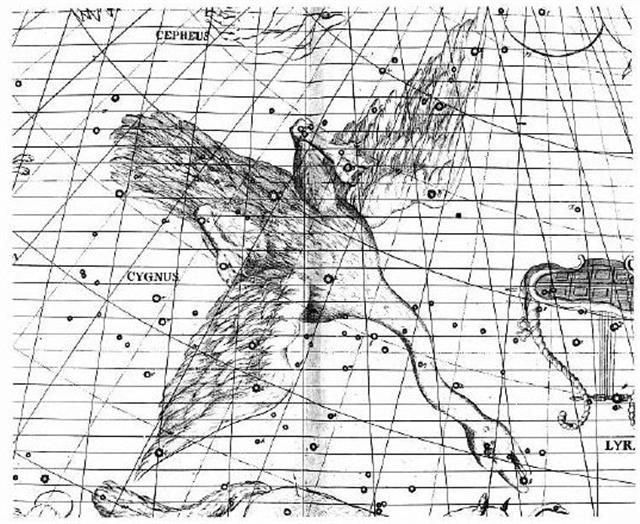 |
|
THE SUN: |
|
March 18 |
19 |
20 (261 - 182 = 79) |
21 (80) |
|
...
Ecclesiastically, the
equinox is reckoned to be on
21 March (even though the
equinox occurs,
astronomically speaking, on
20 March in most years)
...
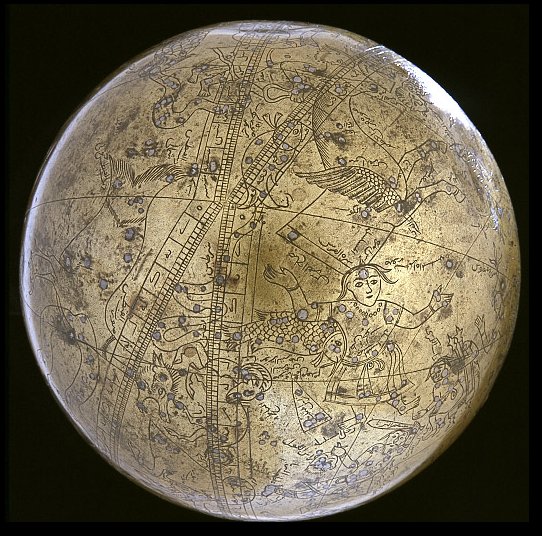 |
|
DZANEB (→ Deneb, Tail) = ω Piscium (362.4),
γ² Oct. (362.8)
*362.4 - *41.4 = *321.0 |
η Tucanae (363.0), ψ Pegasi (363.1),
32 Piscium
(363.2),
π Phoenicis (363.4),
ε Tucanae (363.6), τ
Phoenicis (363.9)
*322.0 = *363.4 - *41.4 |
θ Oct. (364.4)
*323.0 = *364.4 - *41.4 |
Al Fargh al Thāni-25 (Rear
Spout)
0h (365.25)
CAPH (Hand) =
β
Cassiopeiae,
SIRRAH (Navel of the Horse)
= α Andromedae
(0.5),
ε
Phoenicis,
γ³
Oct.
(0.8)
|
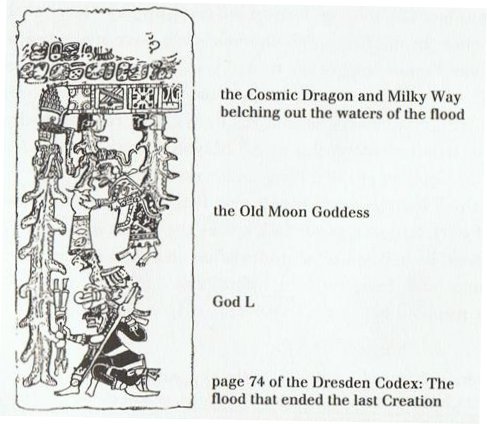 |
 |
 |
 |
|
Eb5-18 |
Eb5-19 (168) |
Eb5-20 |
|
te
tagata - e vai |
mama mamae
hia |
te henua -
Te kiore |
|
Mamae. Illness,
pain, to be ill or in
pain, afflicted;
tagata mamae,
the sick. Vanaga. Sick,
suffering, weak, ill;
mate maia mamae, to
depress; mata mamae,
drowsy, sleepy; mamae
kopu, bellyache;
mamae keo, headache;
mamae toto,
menses; ariga mamae,
to look ill;
hakamamae, to make
ill. T Mgv.: mamae,
to be ill, in pain,
suffering, sorrow. Mq.:
mamae, memae,
suffering, pain, grief.
Ta.: mamae, pain.
Churchill.
Kiore. Rat.
Vanaga. Rat, mouse;
kiore hiva, rabbit.
P Pau., Mgv.: kiore,
rat, mouse. Mq.: kioē,
íoé,
id. Ta.: iore,
id. Churchill.
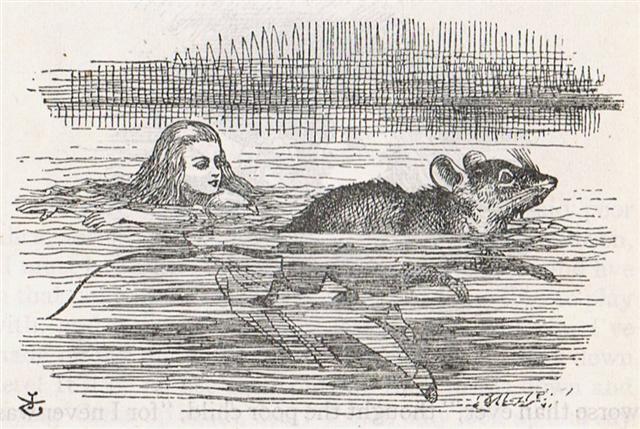 |
|
ALCHITA =
α
Corvi, MA WEI (Tail of
the Horse) =
δ
Centauri
(183.1),
MINKAR =
ε
Corvi
(183.7),
ρ
Centauri (183.9) |
PÁLIDA (Pale) =
δ
Crucis
(184.6),
MEGREZ (Root of the
Tail) =
δ
Ursae Majoris
(184.9) |
Hasta-13 (Hand)
/
Chariot-28 (Worm)
GIENAH (Wing) =
γ
Corvi
(185.1),
ε
Muscae (185.2),
ζ
Crucis (185.4), ZANIAH
(Corner) =
η
Virginis
(185.9)
*144.0 = *185.4 - *41.4 |
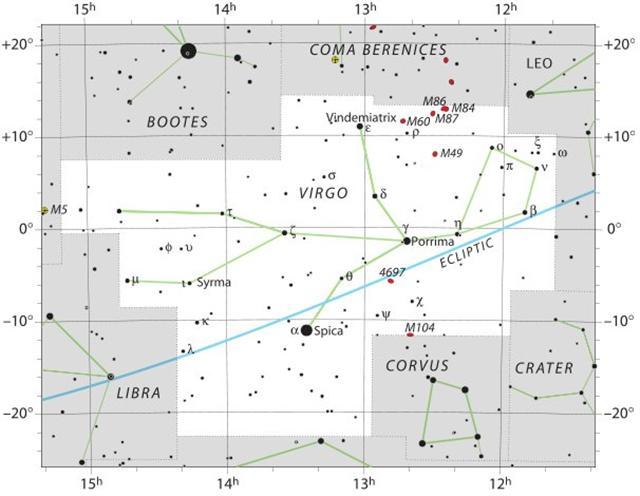 |
|
Sept 20 |
21 (364 - 100 = 180 +
184 = 260 + 4) |
Equinox (265) |
|
"Aug 10 |
11 |
12 (224 = 265 - 41) |
|
JULY 18 |
19 (200) |
20 (224 - 23 = 201 = 265
- 64) |
|
...
The Corner of the House was
in the day before the
Creation of Our Present World -
which evidently had been recreated
in "August 13 (225). i.e. in the
year 70 * 41 - 1842 AD = 1028 BC.
And this would have been 23 * 70 =
1610 (→
JUNE 10) years after the preceding
similar such recreation in the Golden Age of
the Bull.
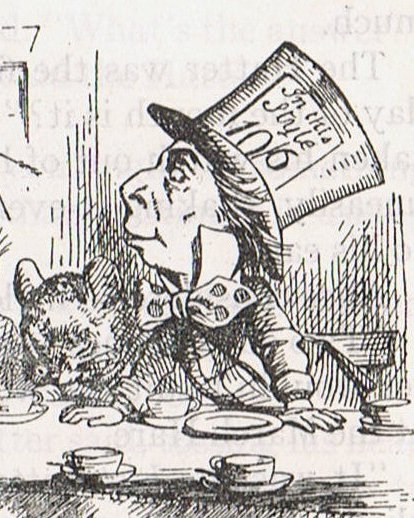 |
|
THE SUN: |
|
March 22 |
23 |
24 (*3) |
|
Uttara Bhādrapadā-27
(2nd of the Blessed
Feet)
/
Wall-14 (Porcupine)
ο Oct. (1.3),
ALGENIB PEGASI = γ
Pegasi
(1.8) |
χ Pegasi (2.1), θ
Andromedae (2.7) |
σ Andromedae (3.0),
ι
Ceti (3.3), ζ Tucanae
(3.5), ρ Andromedae, π
Tucanae (3.7) |
 |
 |
 |
 |
 |
|
Eb5-21 |
Eb5-22 |
Eb5-23 |
Eb5-24 (173) |
|
ihe romi
hia |
e moa ure tupu
hia |
hetu
ki te ragi |
te
kiore - te henua |
|
THE SUN: |
|
Julian equinox (*4) |
March 26 (365 + 85 = 450) |
27 |
28 (*372) |
|
... When Julius Caesar
established his calendar in 45 BC he set March
25 as the spring equinox. Since a Julian year (365.25 days)
is slightly longer than an actual year the calendar drifted with
respect to the equinox, such that the equinox was occurring on about
21 March in
AD 300 and by AD 1500 it had reached 11 March. This drift induced
Pope Gregory XIII to create a modern Gregorian calendar. The Pope
wanted to restore the edicts concerning the date of Easter of the
Council of Nicaea of AD 325.
(Incidentally, the date of Easter itself is fixed by an
approximation of lunar cycles used in the Hebraic calendar, but
according to the historian Bede the English name 'Easter' comes from
a pagan celebration by the Germanic tribes of the vernal - spring -
equinox.) So the shift in the date of the equinox that occurred
between the 4th and the 16th centuries was annulled with the
Gregorian calendar, but nothing was done for the first four
centuries of the Julian calendar. The days of 29 February of the
years AD 100, AD 200, AD 300, and the day created by the irregular
application of leap years between the assassination of Caesar and
the decree of Augustus re-arranging the calendar in AD 8, remained
in effect. This moved the equinox four days earlier than in Caesar's
time ... |
|
No
star listed (4) |
ANKAA =
α
Phoenicis,
κ
Phoenicis (5.0)
ALPHARD (α
Hydrae |
λ Phoenicis (6.3), β Tucanae (6.4)
*6.4 - *41.4 = *147.0 -
182.0 =
-
*35.0 |
ANDROMEDA GALAXY (M31),
π Andromedae (7.7) |
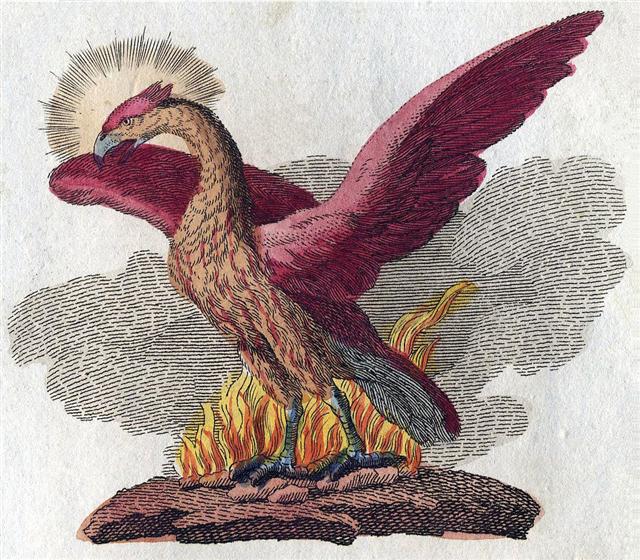
... Nut, whom the Greeks sometimes identified
with Rhea, was goddess of the sky, but it was debatable if in
historical times she was the object of a genuine cult. She was Geb's
twin sister and, it was said, married him secretly and against the
will of Ra. Angered, Ra had the couple brutally separated by Shu and
afterwards decreed that Nut could not bear a child in any given
month of any year. Thoth, Plutarch tells us, happily had pity on
her. Playing draughts with the Moon, he won in the course of several
games a seventy-second part of the Moon's light with which he
composed five new days. As these five
intercalated days did not belong to the official Egyptian calendar
of three hundred and sixty days, Nut was thus able to give birth
successively to five children: Osiris, Haroeris (Horus), Set, Isis
and Nepthys ... |
Life produces offspring. And newborn
children Need the Breast:
Omo.
To suck; omoaga,
bulky cloud; ragi omoaga
cumulus; omoomo; to suck
repeatedly, to suckle; omotahi,
to win everything at a game (lit: to
suck whole): omotahi-mai-á e au,
he has cleaned me out;
omotohi, full (of the moon);
ku-omotohiá te mahina, the moon
is full. Vanaga. Rima omo,
infidelity, faithless, unfaithful.
Omoomo, to smack the lips, to
suck the breast, to smoke tobacco,
to taste of; hakaomoomo, to
suckle, to paint. Churchill. Ta.:
Omotu, an ember, a coal. Mq.:
komotu, omotu, firebrand.
Churchill.
... The bereaved and sorrowing Isis,
meanwhile, wandering over the world
in her quest - like Demeter in
search of the lost Persephone - came
to Byblos, where she learned of the
wonderful tree. And, placing herself
by a well of the city, in mourning,
veiled and in humble guise - again
like Demeter - she spoke to none
until there approached the well the
handmaidens of the queen, whom she
greeted kindly. Braiding their hair,
she breathed upon them such a
wondrous perfume that when they
returned and Astarte saw and smelt
the braids she sent for the
stranger, took her into the house,
and made her the nurse of her child.
The great goddess gave the infant
her finger instead of breast to suck
and at night, having placed him in a
fire to burn away all that was
mortal, flew in the form of a
swallow around the pillar,
mournfully chirping. But the child's
mother, Queen Astarte, happening in
upon this scene, shrieked when she
spied her little son resting in the
flames and thereby deprived him of
the priceless boon. Whereupon Isis,
revealing her true nature, begged
for the pillar and, removing the
sarcophagus, fell upon it with a cry
of grief so loud that the queen's
child died on the spot ...
 |
 |
 |
 |
|
Eb5-25
(326 + 174 = 500) |
Eb5-26 |
Eb5-27 |
Eb5-28 (354 / 2)
|
|
e tamaiti |
nuku maro etoru |
kua puoko i te haú ia |
te henua - te kiore |
|
Tama. 1. Shoot
(of plant), tama miro,
tree shoot; tama tôa,
shoot of sugarcane. 2.
Poles, sticks, rods of a
frame. 3. Sun rays. 4. Group
of people travelling in
formation. 5. To listen
attentively (with ear,
tariga, as subject, e.g.
he tama te tariga);
e-tama rivariva tokorua
tariga ki taaku kî,
listen carefully to my
words. Tamahahine,
female. Tamahine (=
tamahahine), female,
when speaking of chickens:
moa tamahine, hen.
Tamâroa, male. Vanaga.
1. Child. P Pau.: tama
riki, child. Mgv.:
tama, son, daughter,
applied at any age. Mq.:
tama, son, child, young
of animals. Ta.: tama,
child. Tamaahine (tama
1 - ahine), daughter,
female. Tamaiti,
child P Mq.: temeiti,
temeii, young person.
Ta.: tamaiti, child.
Tamaroa, boy, male. P
Mgv.: tamaroa, boy,
man, male. Mq.: tamaóa,
boy. Ta.: tamaroa,
id. 2. To align. Churchill.
In the Polynesian this [tama
na, father in the Efaté
language] is distinguished
from táma child by
the accent tamā
or by the addition of a
final syllable which
automatically secures the
same incidence of the
accent, tamái,
tamana
... Churchill 2 |
|
ε Andromedae (8.2), DELTA = δ Andromedae (8.4), SCHEDIR (Breast) = α Cassiopeiae
(8.6), ζ Andromedae, μ
Phoenicis (8.9)
*8.4 - *41.4 = *149.0 -
182.0 =
- *33.0 |
ξ
Phoenicis (9.0),
ρ
Tucanae (9.1),
DENEB KAITOS (Tail of the
Sea Beast) =
β
Ceti,
η Phoenicis (9.4),
AL NITHĀM (String of Pearls)
=
φ¹
Ceti
(9.6)
*9.4 - *41.4 = *150.0 -
182.0 =
- *32.0 |
ACHIRD (Woman with Luminous
Rays) =
η
Cassiopeiae
(10.7) |
Legs-15 (Wolf)
ν
Andromedae (11.0),
φ²
Ceti (11.1),
ρ
Phoenicis
(11.2),
η
Andromedae (11.4)
*335.0 = *11.4 - *41.4 |
|
Sept 27 (270) |
28 |
29 |
30 (3 * 91 = 273) |
|
March 29 (88) |
30 |
31 |
April 1 (91) |
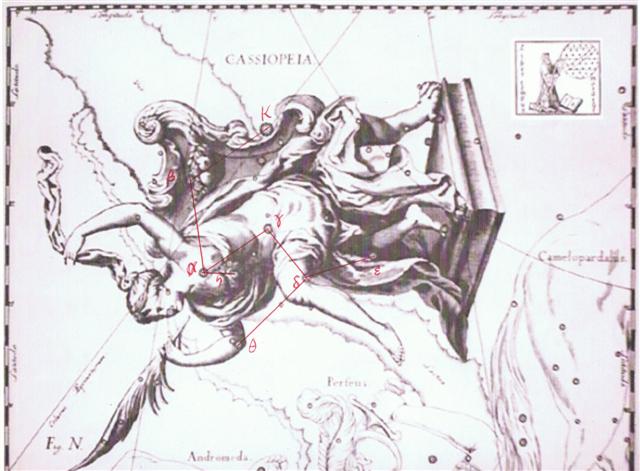
|

.jpg)














